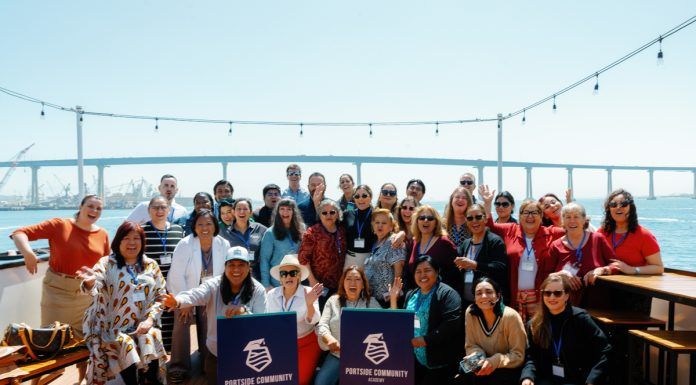Norma Chávez-Peterson knows all about the struggles of inequality.
As a child growing up in National City she often dealt with the inequalities of living in America as an immigrant from Michoacán, Mexico.
Living in a single-family home with two other siblings and a mother who did all she could to make ends meet, Chávez- Peterson quickly felt what it was like growing up poor.
Chávez-Peterson, 39, recounts a time when she spent Christmas Day as a kid at the MAAC project’s holiday party just so that she could get a toy.
Her march to equality started as a teenager at Chula Vista Junior High School where she noticed several student organizations on campus.
However, there wasn’t a Latino-based club on campus.
As a result, she said, she helped bring the Chicano student-movement group known as Movimiento Estuidantil Chicano de Aztlan, or MEChA, to the junior high school.
She said although MEChA just raised money for field trips it brought a sense of togetherness for the students in the club.
Thirty years later she is using that experience for her new position as executive director of the American Civil Liberties Union of San Diego and Imperial Counties.
Working with the ACLU for a little over a year, she was hired as the executive director last September.
Prior to her new position she had served the organization as an associate director.
She applied for the executive director job when her predecessor Kevin Keenan moved to New York.
After a three-month nationwide search, the ACLU last year selected Chávez-Peterson over 45 candidates to head the organization.
Chávez-Peterson said the position suits her.
“I feel like I always had the values of community and how to make the world a better place,” she said. “I think it comes from my own experience.”
She became more interested in equality when she was at Chula Vista High School, where she said she started studying Mexican-American history, race, class, politics and structure with the help of books and articles from college tutors.
Then her work moved from the schools to the border.
In 1990 there was an anti-immigration movement called Light-up-the-Border where an anti-immigrant group proposed parking their cars by the border and turning their lights on to light up the border in hopes of catching immigrants running.
Chávez-Peterson attended protest events against the movement.
As the ACLU’s executive director, Chávez-Peterson said her top goal is to continue the organization’s work in advocating for immigrant rights.
“For us, our immigrant rights work is all about how we make sure that we’re advancing civil rights and due process and human rights at the border as we see this massive enforcement,” she said.
Also high on her list is working on the criminal justice and drug reform policy in the state of California.
“Because of prison over-crowding the state is sending low level, low offense folks to the county prisons,” she said.
“And so we’re working to make sure we have a conversation around how do we advance public safety but how do we do it in a way that doesn’t just keep criminalizing folks.”
She said there are many individuals in the criminal justice system who have not hurt anyone but just have an addiction.
Her last goal is to fix voter-rights issues and get more people registered to vote in a non-partisan manner.
On top of accomplishing her goals, she said her new position includes her maintaining the overall vision of the ACLU board and raising money for the San Diego and Imperial County affiliates.
The Chula Vista resident said she is proud to serve the South Bay.
“I made my life here, I still live here,” she said.
Chávez-Peterson has a degree in political science from San Diego State University.
She was the co-founder of Justice Overcoming Boundaries, a network of faith, community, education, business and labor partners working together to advance social justice in San Diego.














